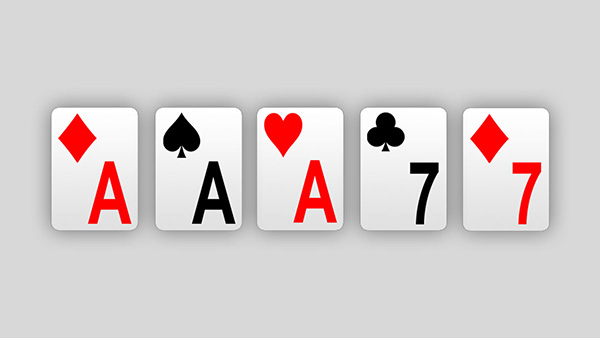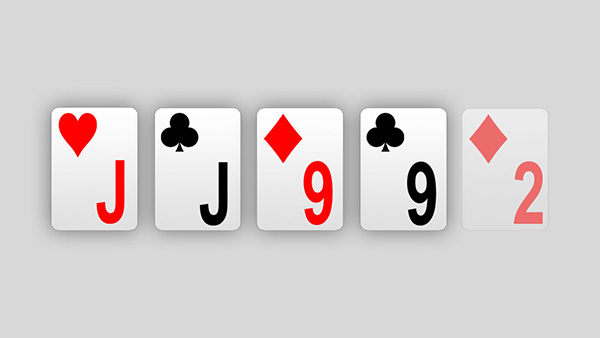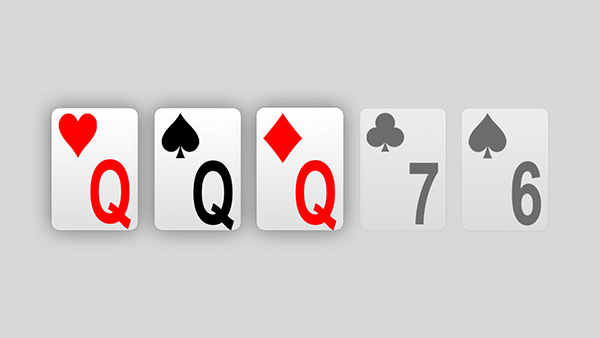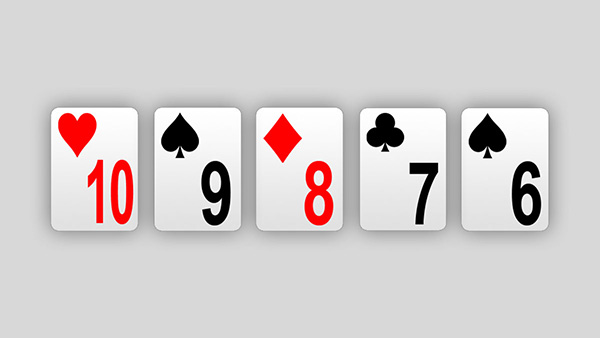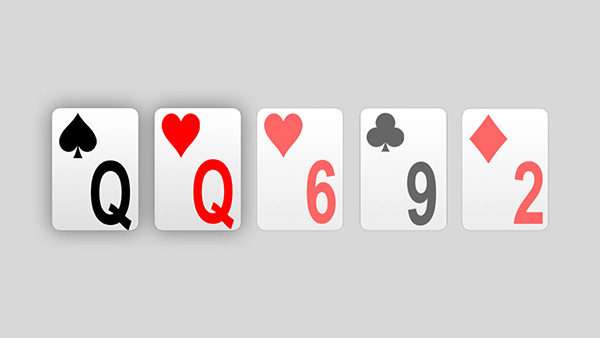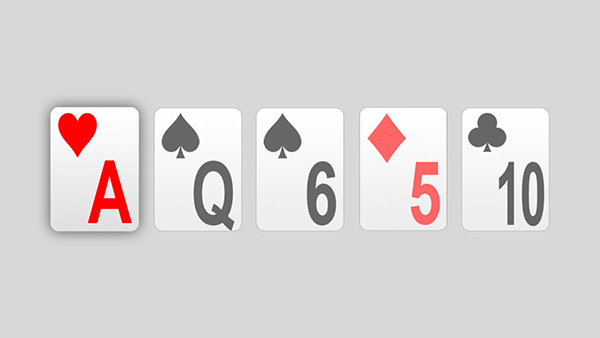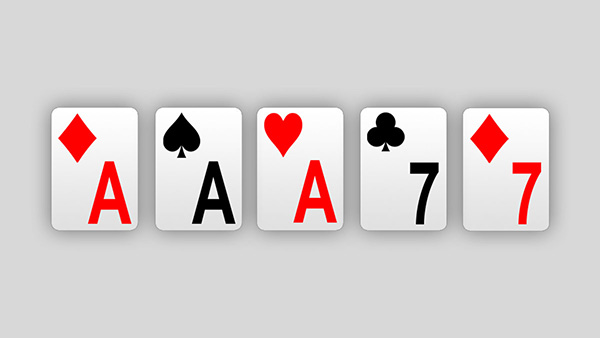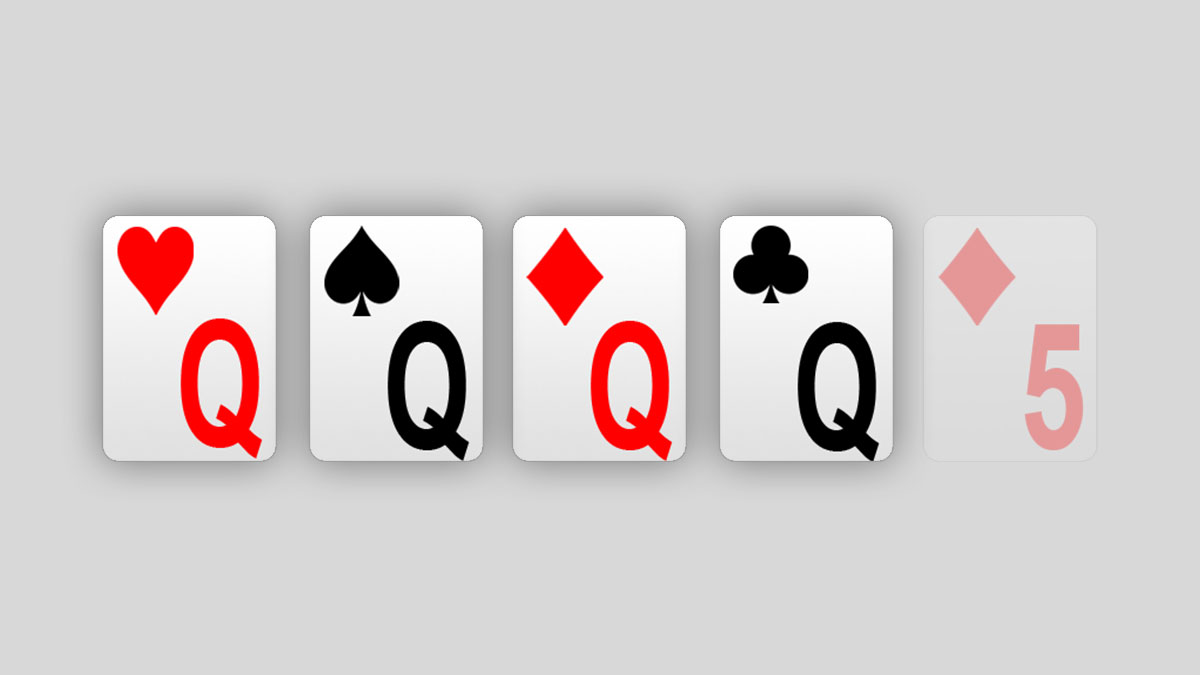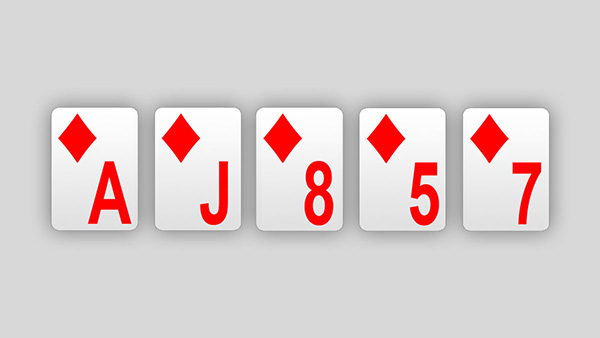The odds of flopping a full house with a pocket pair is 0.98% or 1 in 102
Definition of Full House (also known as a Boat or Full Boat) –
Three cards of one rank and two cards of another. (I.e. three of a kind and a pair made at the same time).
Example – AdAhAsKcKh
Aces Full of Kings the strongest Full House hand in poker and is also referred to as “Aces Full”.
Odds of Making a Full House on the Flop
Full Houses are rare in poker. Hitting on the flop is hence not a common occurrence.
Odds of flopping a Full House with any starting hand = 0.14%
Odds of flopping a Full House with any unpaired hand = 0.09%
Odds of flopping a Full House with a pocket pair = 0.98%
To put that into context;
A pocket pair will hit a Full House roughly once every 100 flops. An unpaired hand will hit a Full House once every 1,000 flops. Ignoring the exact starting hand, we should expect to flop (on average) one Full House for every 714 flops we see.
Assuming about 25% of our holdings see a flop, we should expect to flop a Full House once every 2,857 hands.
Of course, the above calculation is just an average, sometimes we’ll flop more often, other times less frequently.
The odds of making a Full House or better should not change drastically, because there simply aren’t that many better hands than a Full House.
Odds of flopping a Full House or better with any starting hand = 0.17
Odds of flopping a Full House or better with AKo = 0.1%
Odds of flopping a Full House or better with T9s = 0.12%
Odds of flopping a Full House or better with 88 = 1.22%
We can see that a pocket pair is by far our best shot at being able to make a Full House or better, hitting roughly 10 times as often as unpaired hands.
